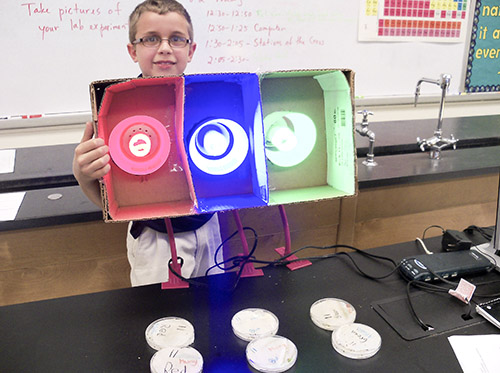More Information: The Wonder of Seeds

Next Generation Science Standards (NGSS) Performance Expectations
The performance expectations for the Wonder of Seeds module are:
- 5-LS1-1
- 5-LS2-1
- MS-LS1-4
- MS-LS1-5
- MS-LS1-6
- MS-LS2-1
- MS-LS2-3
- HS-LS1-4
- HS-LS1-5
A 2-week or longer investigation for grades 6-12.
This investigation introduces students to National Science Education Standards biology content using research as the framework. By forming a question, devising an experiment to test a hypothesis, then conducting and analyzing an experiment, students practice thinking and working like a scientist and grasp the elements of sound research skills while exploring the topic.
Essential Inquiry Questions:
- What role do seeds play in supporting life on Earth?
- How does a sprout develop from a seed?
- What are the characteristics of seed germination and seedling growth?
- What role does the environment play (biotic and abiotic) in seed germination and growth?
Germination investigations can be adapted to a variety of levels, depending on which resources fit the students. Materials (seeds, soil, growing containers, or supplemental lighting) can all be obtained at fairly low cost.
Also check out the Corn Competition, an excellent lead-in activity to the Wonder of Seeds for students with a limited or unknown inquiry background.
The Wonder of Seeds Resources: